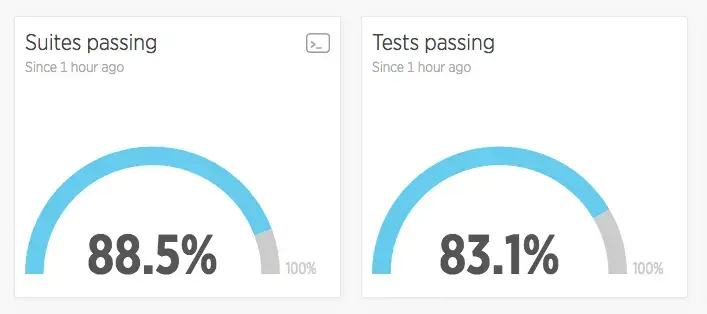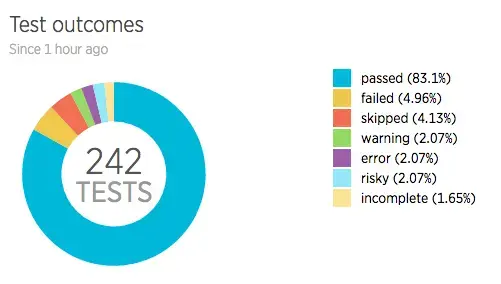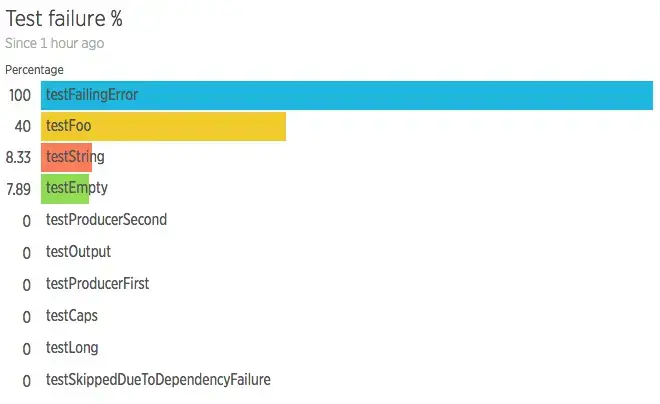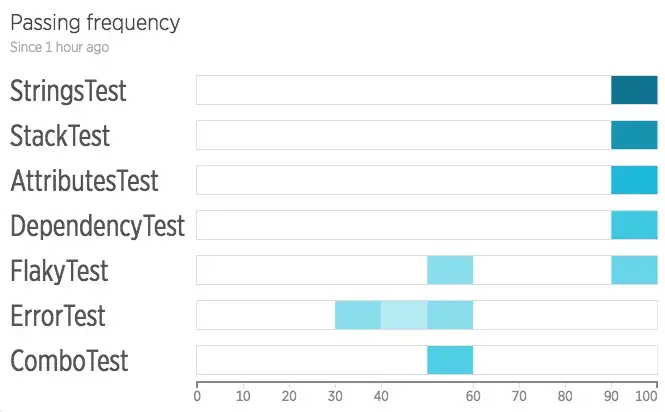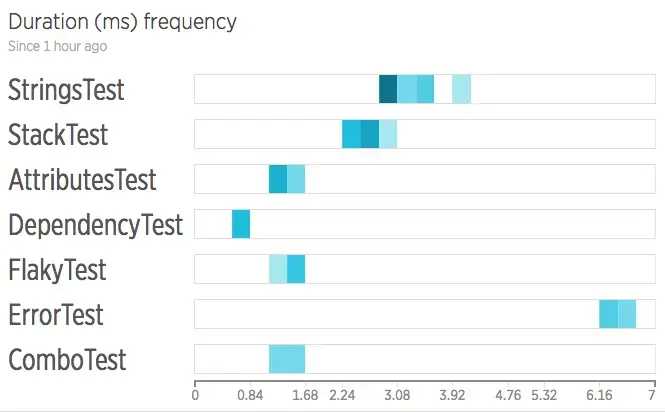When you use PHPUnit to manage and run your unit tests, the New Relic PHP agent can automatically capture the test summary results. The agent sends this data to the New Relic platform as events, allowing you to query, chart, and analyze your test results. This feature supports PHPUnit version 8.x only.
注意
The New Relic PHP agent doesn't support PHPUnit version 9 or newer. To prevent out-of-memory errors when running unit tests with PHPUnit version 11 or newer, you must explicitly disable the agent by setting newrelic.enabled to false. You can disable the it while using phpunit like this:
php -d newrelic.enabled=false phpunit ...remaining arguments...This workaround disables all instrumentation of unit tests.
Enable PHPUnit test events
To enable PHPUnit test events:
- Find or add the
newrelic.phpunit_events.enabledsetting in yournewrelic.inifile and set it totrue. - Restart your web server (apache, PHP-FPM, Nginx, etc) for the setting change to take effect.
ヒント
Exception messages are collected and sent with events. Also, if you use PHPUnit's --disallow-test-output option, which flags tests that print output as "risky," the test event will include the offending output.
View available attributes
When enabled, the PHP Agent detects PHPUnit commands and populates New Relic with two event types that contain data for the test suite (named TestSuite) and individual tests (named Test). You can query the data with NRQL queries and build a dashboard of information important to you.
To query your test events, use FROM TestSuite and FROM Test when specifying your SELECT statements:
SELECT uniqueCount(name) FROM TestSuite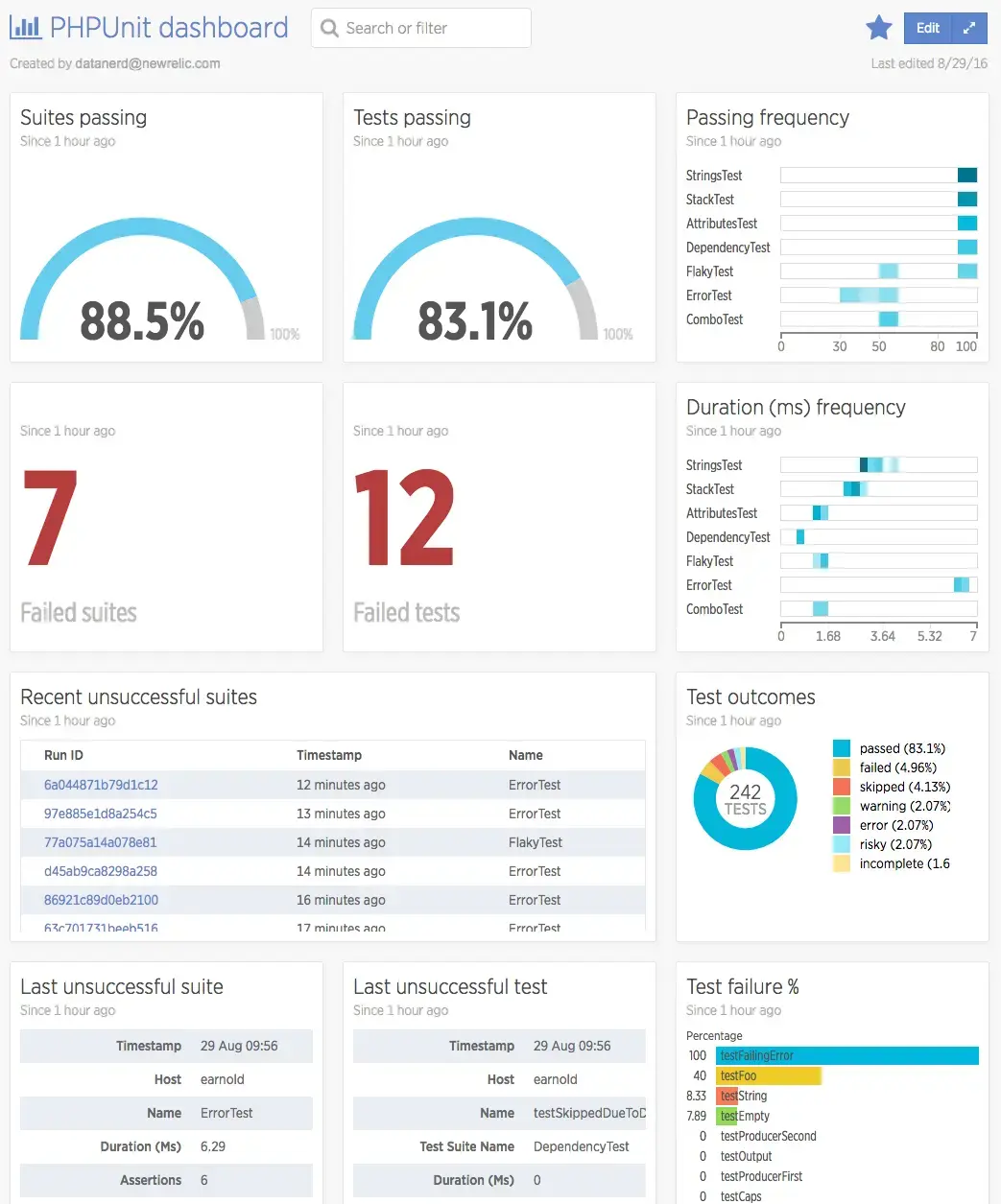
Example of a PHPUnit test dashboard created by querying TestSuite and Test events.
Example queries
A dashboard of test summary data allows you to quickly see a snapshot of overall test success as well as dig into failing suites to determine their cause. These examples illustrate the kinds of widgets you can create with both TestSuite and Test event types.
Linked facets
Because a PHPUnit test suite is linked to individual tests via its run ID, you can use FACET widgets to filter results for a specific test run.
For example, if you created a widget with the most recent failing test suites and linked it to the current dashboard, you could click on a test and the surrounding widgets would update with information for only that test suite run.
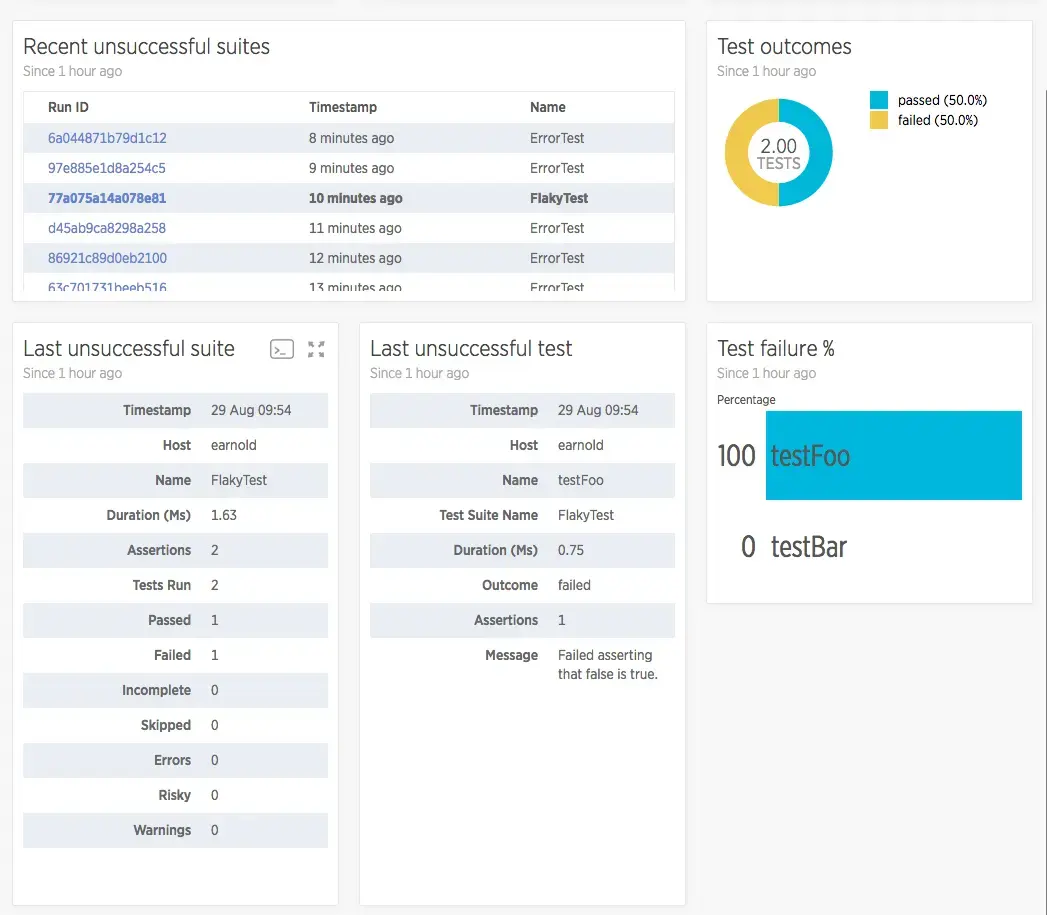
FACET widget (top-left) linked to the current dashboard allows you to drill into failing test suites.
In the above example, you can see that by clicking on run 5bb37ccee2a1dbc7, we learn that one of two tests, testFoo, failed. Here are the NRQL queries that made up this example:
Recent unsuccessful suites:
SELECT latest(timestamp), latest(name) FROM TestSuite WHERE successful IS false FACET runIdLast unsuccessful suite:
SELECT host, name, duration * 1000 AS 'duration (ms)', assertionCount, testCount, passedCount, failedCount, incompleteCount, skippedCount, errorCount, riskyCount, warningCount FROM TestSuite WHERE successful IS false LIMIT 1Last unsuccessful test:
SELECT host, name, testSuiteName, duration * 1000 AS 'duration (ms)', outcome, assertionCount, message FROM Test WHERE outcome != 'passed' LIMIT 1PHPUnit event attributes
TestSuite and Test events contain the following attributes you can query against:
